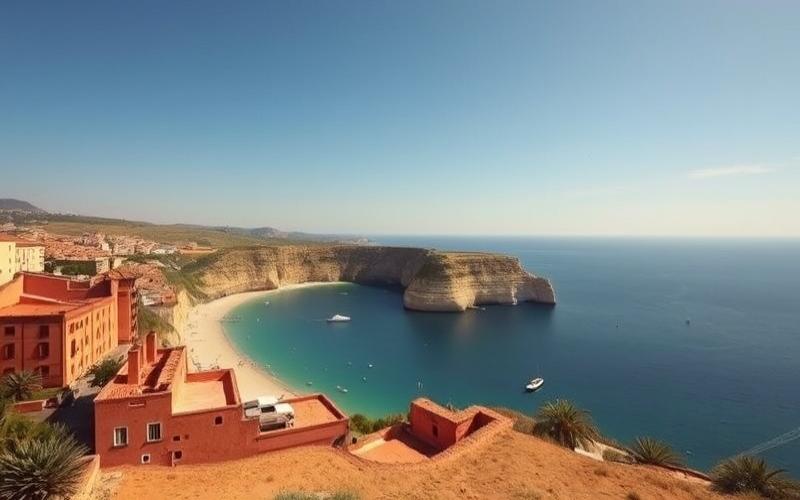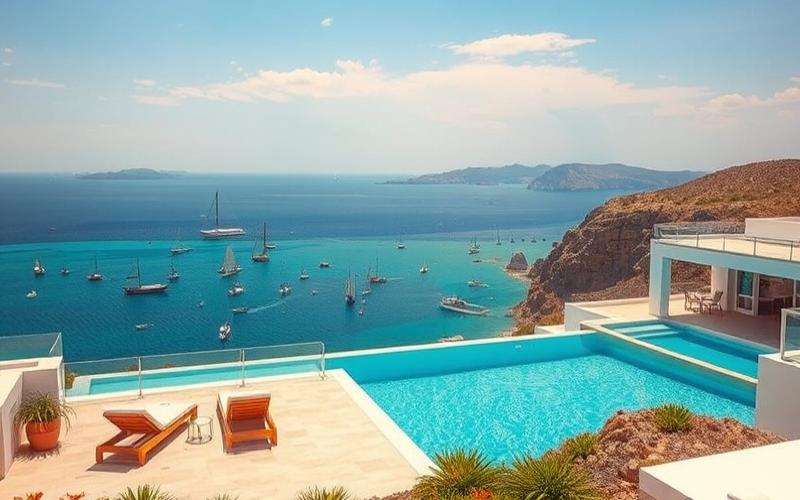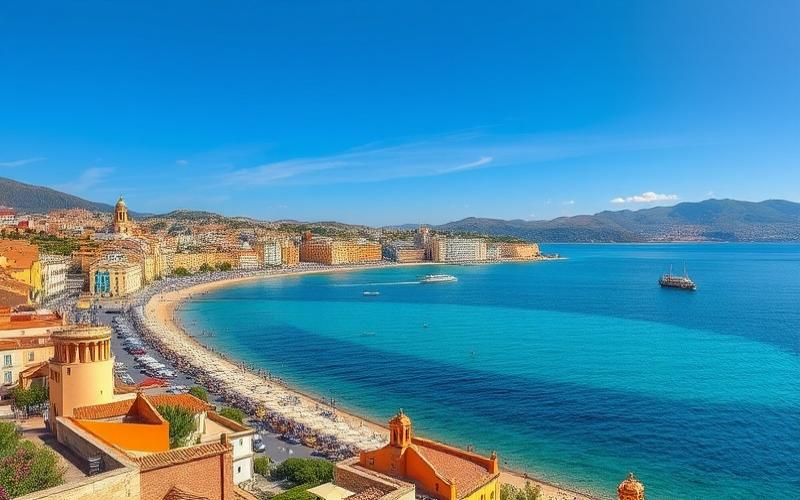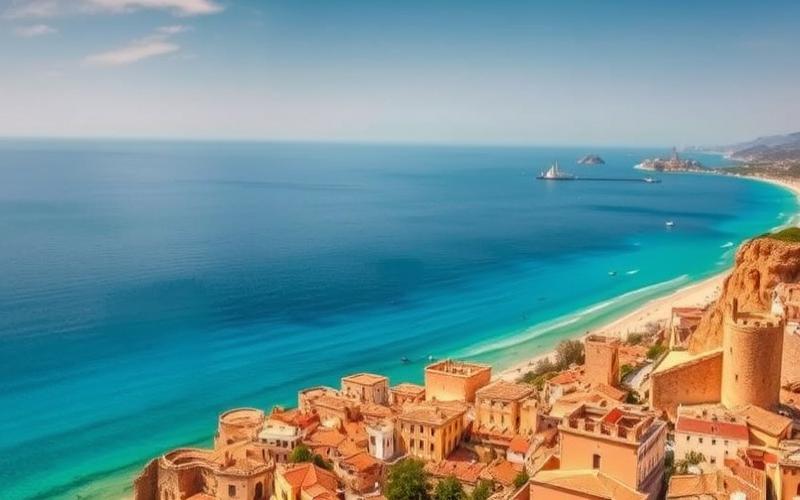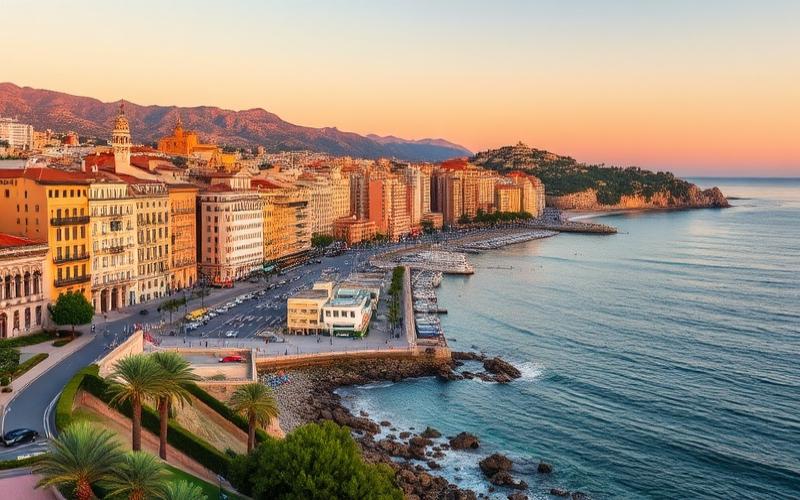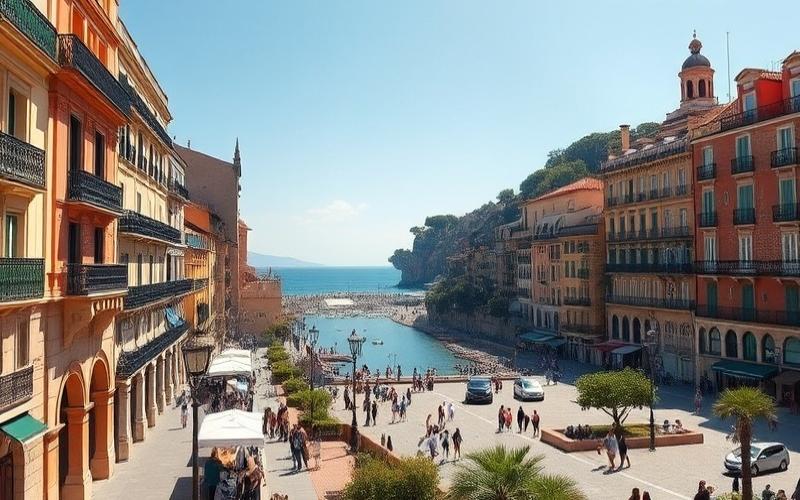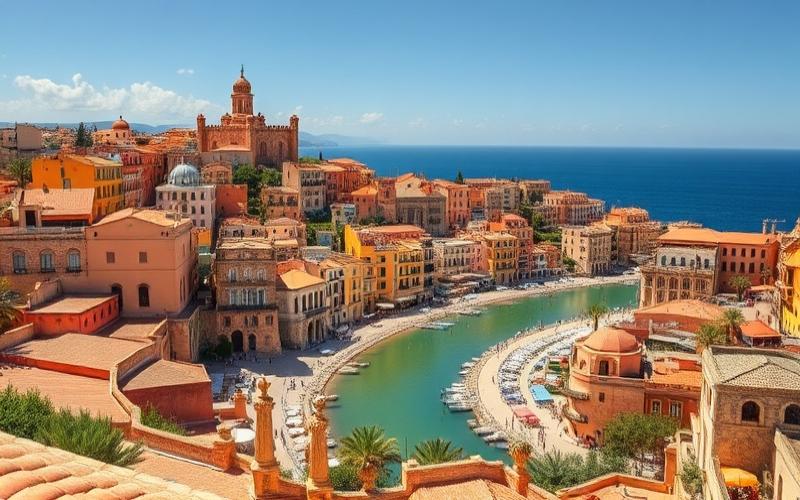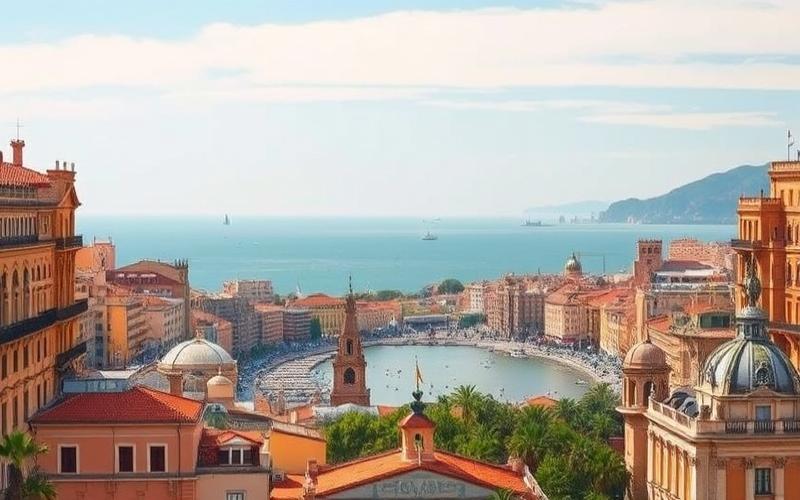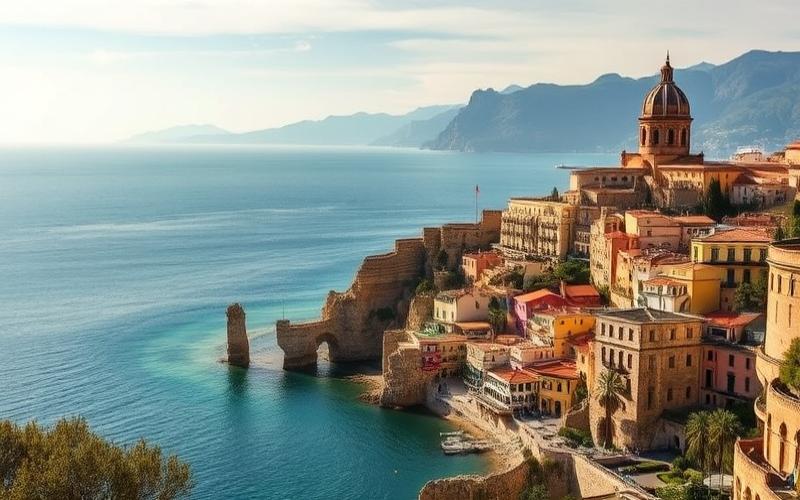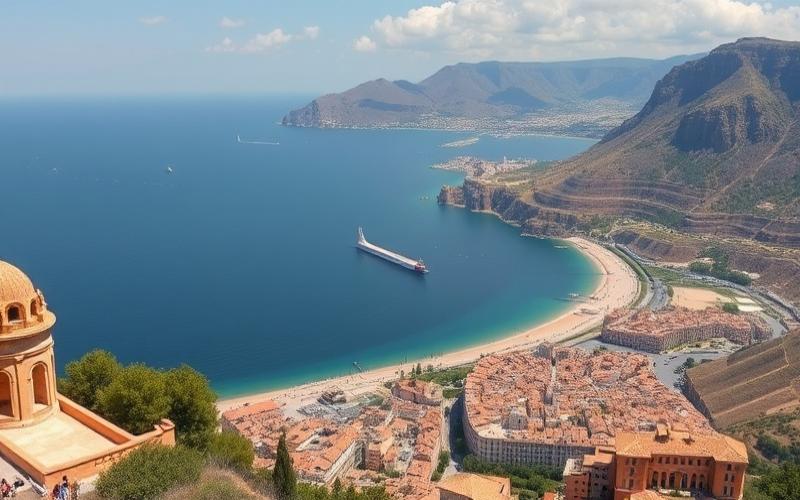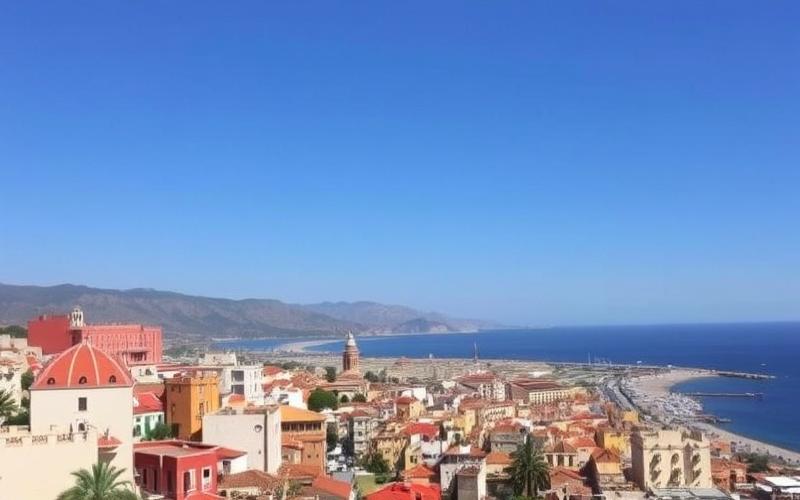
 Published on and written by Cyril Jarnias
Published on and written by Cyril Jarnias
Spain continues to attract numerous French investors in the real estate sector, particularly for second homes. This neighboring country offers an appealing combination of investment opportunities, quality of life, and tax advantages that make it a preferred destination for those looking to diversify their real estate portfolio abroad.
Why is Spain the New El Dorado for Second Homes?
Spain’s appeal for second home investors rests on several solid pillars that make it a privileged destination.
An Idyllic Climate and Enviable Lifestyle
With over 300 days of sunshine per year, Spain offers an exceptional living environment that attracts buyers seeking a pleasant lifestyle. The long sandy beaches, renowned cuisine, and the country’s cultural richness are major assets for attracting second home investors.
Still Attractive Real Estate Prices
Despite recent increases, real estate prices in Spain remain generally lower than those in France, particularly in sought-after coastal areas. This difference allows French buyers to access more spacious or better-located properties for an equivalent budget.
Advantageous Taxation
Spain applies generally lighter real estate taxation than France. Property owners benefit from lower property taxes, which reduces long-term holding costs. Additionally, French citizens who become tax residents in Spain benefit from a favorable tax regime, with income tax and real estate wealth tax generally lower than in France.
Interesting Rental Potential
The seasonal rental market is particularly dynamic in Spain, offering attractive profitability prospects for second home owners. The strong tourist demand, especially in coastal areas, allows for substantial rental income during the high season.
Good to Know:
Spain offers a winning combination for second home investors: pleasant climate, competitive real estate prices, advantageous taxation, and strong rental potential.
Spanish Hotspots for Your Second Home
Spain is full of attractive destinations for investing in a second home. Here’s an overview of the most sought-after regions:
Costa del Sol: The Andalusian Gem
This southern Spanish region, with its renowned beach resorts like Marbella or Torremolinos, attracts many international investors. The climate is particularly mild and the real estate offerings are varied, ranging from seaside apartments to luxurious villas in the countryside.
Costa Blanca: Mediterranean Charm
Around Alicante, the Costa Blanca charms with its long sandy beaches and charming coastal villages. Cities like Benidorm or Calpe offer excellent value for second homes, with strong summer rental potential.
Balearic Islands: Island Exclusivity
The islands of Majorca, Minorca, and Ibiza are prime destinations for investors seeking high-end properties. The real estate market is more expensive but offers interesting long-term appreciation prospects.
Catalonia: Between Sea and Mountain
The Catalan region, with Barcelona as its flagship, attracts many French investors. The Costa Brava, north of Barcelona, offers an idyllic setting for second homes, between wild coves and picturesque fishing villages.
Costa de la Luz: Preserved Authenticity
Less known than its neighbors, the Costa de la Luz in Andalusia offers interesting opportunities for investors seeking authenticity. Prices are still affordable and the development potential is significant.
Good to Know:
Each Spanish region has its specificities. It’s crucial to clearly define your objectives (personal use, rental profitability, appreciation) before choosing your investment destination.
Keys to Success for Your Second Home Investment in Spain
Investing in a second home in Spain requires careful preparation. Here are some tips to successfully carry out your project:
Clearly Define Your Objectives
Before starting, precisely determine how you want to use your second home: exclusive personal use, seasonal rental, or a mix of both. This reflection will guide your choices in terms of location and property type.
Work with Local Professionals
The Spanish real estate market has its specificities. It’s highly recommended to work with local professionals: real estate agent, lawyer, notary. They will help you navigate the administrative and legal complexities of the transaction.
Study the Local Market
Each region, even each city, has its own market dynamics. Take the time to study price trends, development prospects, and rental demand in the area that interests you.
Anticipate Additional Costs
Beyond the purchase price, don’t forget to include in your budget notary fees, local taxes, potential renovation work, and property maintenance costs.
Optimize Your Financing
If you opt for bank financing, compare offers from Spanish and French banks. Some French banks offer specific loans for real estate purchases abroad.
- Check property compliance: Ensure the property complies with local regulations (building permits, habitability certificate, etc.).
- Consider rental management: If you plan to rent your property, think about how you will manage it (directly or through a local agency).
- Anticipate taxation: Research the tax implications of your investment, both in Spain and France.
Good to Know:
A successful second home investment in Spain requires careful preparation and support from local professionals. Don’t neglect any aspect, from property search to future management.
Rental Profitability: Numbers That Bring Smiles
Investing in a second home in Spain can be particularly profitable, especially through seasonal rentals. Here are some concrete examples of rental profitability observed in different Spanish regions:
Costa del Sol: The Rental El Dorado
In Marbella, an 80m² apartment with sea views, purchased for €300,000, can generate up to €25,000 in annual rental income, representing a gross yield of 8.3%. Luxury villas can achieve even higher yields, sometimes exceeding 10%.
Costa Blanca: Solid Returns
In Alicante, a 60m² apartment near the beach, acquired for €150,000, can generate about €12,000 per year in seasonal rentals, representing a gross yield of 8%. Small villas with pools are particularly sought after and can show yields above 9%.
Balearic Islands: Exclusivity Has Its Price (That Pays Off)
In Ibiza, a 150m² villa with a pool, purchased for €800,000, can generate up to €60,000 in annual rental income, representing a gross yield of 7.5%. Prestige properties can achieve very high daily rental rates during the high season.
Catalonia: Between Sea and City
On the Costa Brava, a 70m² apartment with sea views, purchased for €200,000, can generate about €15,000 per year, representing a gross yield of 7.5%. In Barcelona, well-located apartments for tourist rentals can achieve similar or even higher yields.
Costa de la Luz: The Emergence of a New Market
In Tarifa, a 50m² apartment near the beach, acquired for €120,000, can generate about €9,000 in annual rental income, representing a gross yield of 7.5%. The growth potential of this region suggests interesting prospects for the future.
It’s important to note that these figures are averages and can vary depending on many factors: precise location, property quality, rental period, etc. Additionally, these are gross yields, before accounting for expenses, taxes, and management fees.
Good to Know:
The rental profitability of second homes in Spain can be very attractive, especially in popular tourist areas. However, it requires active management and good knowledge of the local market to optimize income.
Conclusion: Spain, a Wise Choice for Your Second Home
Investing in a second home in Spain presents many advantages for French investors. The pleasant climate, geographical proximity, still attractive real estate prices, and high rental potential make it a preferred destination for diversifying real estate assets.
However, like any foreign investment, it requires careful preparation and a good understanding of local specificities. It’s crucial to clearly define your objectives, work with competent professionals, and thoroughly study the local market before starting.
With a thoughtful approach and appropriate management, a second home in Spain can not only offer you a sunny vacation spot but also constitute a profitable long-term investment.
Disclaimer: The information provided on this website is for informational purposes only and does not constitute financial, legal, or professional advice. We encourage you to consult qualified experts before making any investment, real estate, or expatriation decisions. Although we strive to maintain up-to-date and accurate information, we do not guarantee the completeness, accuracy, or timeliness of the proposed content. As investment and expatriation involve risks, we disclaim any liability for potential losses or damages arising from the use of this site. Your use of this site confirms your acceptance of these terms and your understanding of the associated risks.

